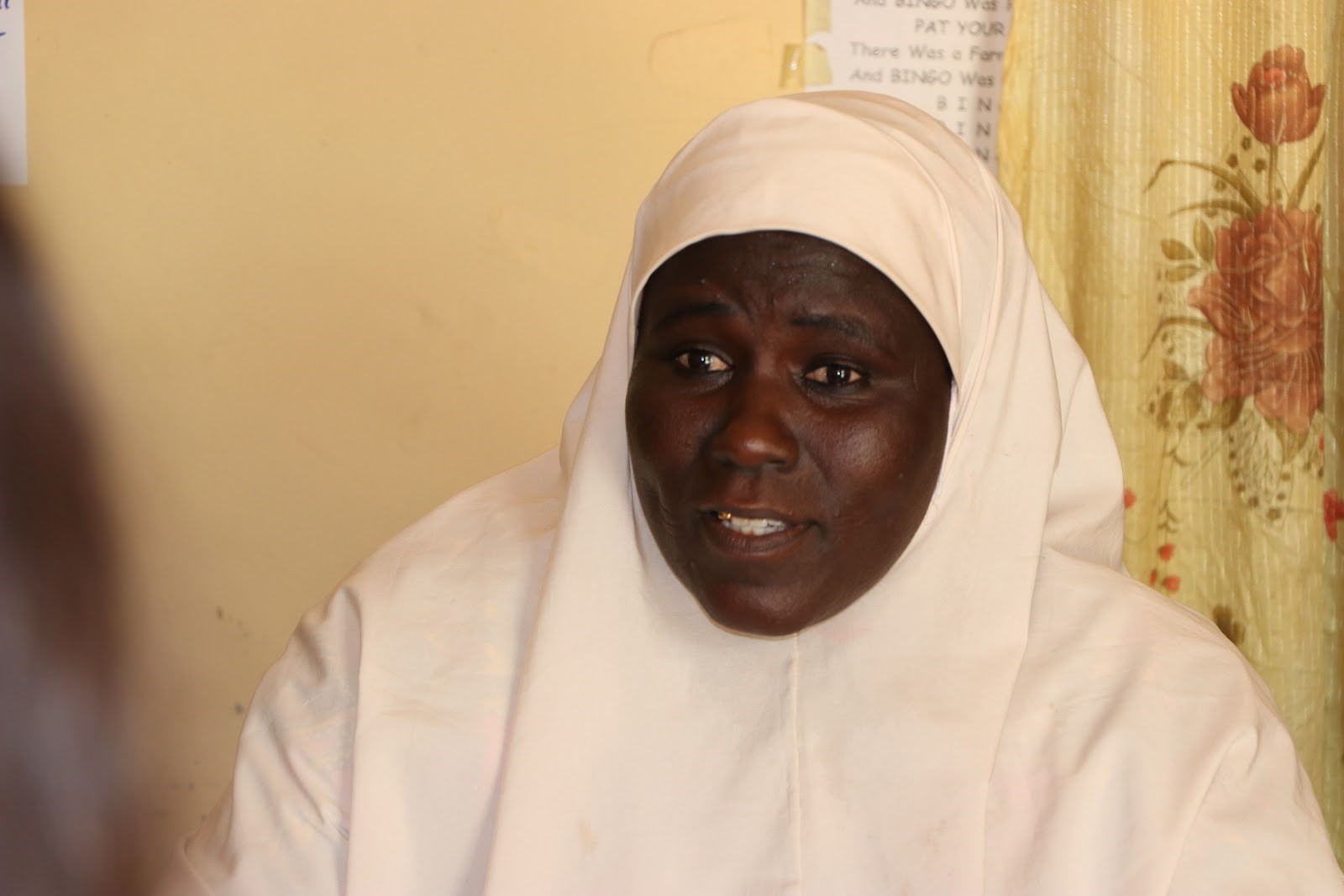Teacher Stories: Lawan and Fatsuma - Damaturu, Nigeria
This story was collected as part of Teachers in Crisis Contexts (TiCC) Event Series to ensure that the voices and experiences of teachers working in crisis and displacement permeate all aspects of the event. For more stories, click here.
'Education is the Basis' in Damaturu, Nigeria and Everywhere
Names: Lawan and Fatsuma
Roles: Village Leader (Lawan) and Head Teacher (Fatsuma)
School: Modu Mustapha Primary School (Fatsuma)
Location: Damaturu, Nigeria
The road from Maiduguri to Damaturu, from Borno to Yobe states in Northeast Nigeria, is pockmarked from bombs. No one has repaved – the threat to people and equipment is too great. Expect to stop often, waiting to pass through any number of checkpoints set up by the police, military and civilians all working to protect their communities from the threat of armed opposition groups. The land is flat, lush and entirely empty – no one will build anything or grow a community, the risk of violence is too great.

Those who fled such groups for the hope of safety in Damaturu and surrounding villages are integrated into the host community. The task of integration often falls to village leaders like Lawan Sumsumma, who has been head of the village of Sumsumma for more than 20 years. He is used to addressing problems like family disagreements or marital issues. His responsibilities have changed as his community welcomes more and more internally displaced persons (IDP).
“The IDPs come here and we make them a part of the community, integrate them,” he said. “Many have bought land here – we are happy they are staying.”
Lawan has participated in FHI 360’s Addressing Education in Northeast Nigeria (AENN) project, which is responsible for all aspects of 75 nonformal learning centers (NFLCs) – enrollment, capacity building for teachers, creating and distributing scholastic and instructional materials as well as the safety of everyone within its walls. Support for formal schools includes teacher training and provision of instructional materials. Part of Lawan’s job is to mobilize the community and make them aware that these NFLCs and schools exist. His team will go door-to-door, talking to parents or caregivers and encouraging them to send kids to school.
“I visit schools and see progress – the children learn a lot,” Lawan said.

Fatsuma Idris Gulani has taught in Damaturu for 25 years. As a child she dreamed of becoming a nurse, but her father wanted her to pursue teaching. Now she is the head teacher at Modu Mustapha Primary School, one of the nonformal centers. When asked if she could turn back time and become a nurse, Fatsuma said “I am proud to be a teacher. I will always be a teacher.”
As class sizes grow to accommodate the influx of IDPs, Fatsuma and her school’s needs are changing. “We need more instructional materials and school uniforms. We need motivation for teachers,” she said.
Yusuf Ali, head teacher at Model Primary School – another of AENN’s centers – feels teachers need more support. “If we want teaching to remain at a high standard, we have to have qualified teachers,” he said. He would like to see more opportunities for teacher training – particularly in pedagogy – and professional development.
Despite the challenges, “performance is improving for now,” Yusuf said. “With non-government organization help, kids are showing up on time, getting material. They feel empowered,” he added. Lawan also sees a need.
The most important thing we need here is education,” he said. “Education is the basis and background for every human being.”
*FHI 360’s Addressing Education in Northeast Nigeria (AENN) project, funded by the U.S. Agency for International Development, has set up 75 nonformal learning centers (NFLC) and supports 42 formal schools in the Damaturu region. NFLCs are different from formal schools – they operate on an expedited curriculum aiming to catch out of school children up to their peers in just nine months.
The views expressed in this blog are the author's own.



